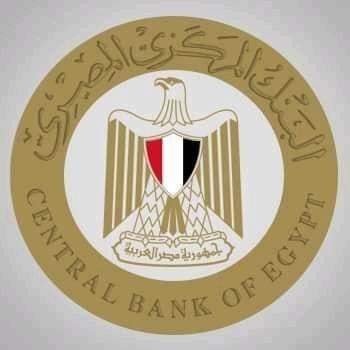“He is afraid of the fate of Hosni Mubarak; the media contributed to toppling him in one way or another.” This is how observers describe Abdel Fattah al-Sisi’s attempt to acquire the various media outlets, the most recent of which was Al-Mehwar TV and Al-Masry Al-Youm newspaper. Al-Sisi’s story with the media began in the first months of his presidency, after leading the coup in 2013 against the first elected civilian president.
In August 2014, while speaking at the ceremony announcing the Suez Canal Development Corridor’s inauguration, al-Sisi said, “The late leader Gamal Abdel Nasser was lucky because he was speaking and the media was with him.” During the years that followed, al-Sisi repeatedly spoke about the importance of the media and its role in promoting the regime’s achievements, and his speeches often included criticism of the pro-regime media. However, many believed that they exaggerated support for him.
Al-Sisi’s interest in the media was not limited to wishes or criticism, as Egypt has witnessed accelerated steps since the coup towards extending government control over the press. Since mid-2016, the contract for Egyptian private satellite TV stations began to unravel after companies affiliated with the sovereign bodies acquired them one by one. The last of them was the Mehwar TV network owned by businessman Hassan Ratib, who owns wide and varied investments in the Sinai Peninsula, and who was celebrating on these days last year the 19th anniversary of the launch of this TV station. He did not celebrate the 20th anniversary of its launch after he sold it to Muhammad Mandhour, a senator from the pro-regime Future Watan Party. Mandhour obtained 50 per cent of the station’s ownership, while the rest was distributed to one of the official media agencies Nilesat and Media Production City, according to Egyptian newspapers.
In mid-2016, the first big step was when the famous Egyptian businessman Naguib Sawiris sold the ON TV network of stations to Egyptian Media, a company owned by businessman Ahmed Abu Hashima. This company, in turn, moved to the United Media Services Company of the sovereign state agencies (intelligence), a term that is often referred to as either the presidency of the republic, intelligence, or the army. Sawiris also lost the Free Egyptians Party he founded after the January 2011 revolution, and the party has become one of the parties loyal to the current authorities.
In the following year, businessman Mr. al-Badawi sold the famous al-Hayat TV station network to Tawasol, a subsidiary of Falcon, which in turn sold it to Egyptian Media in mid-2018. Since then, the importance of the station has diminished. Badawi also became involved in politics and headed the Wafd Party, one of the oldest liberal parties in Egypt, before losing the party’s leadership, which had come under the control of loyalists to President Abdel Fattah al-Sisi.
In September 2018, the same Egyptian Media company acquired al-Mustaqbal company, which owns the CBC network, affiliated with businessman Mohamed al-Amin, who established a successful network of TV stations by the acquisition of al-Nahar and Modern TV stations group. Al-Amin is a businessman who has worked in the field of contracting outside Egypt in Kuwait, for a long time. Still, his name suddenly appeared after the January 2011 revolution, after he entered the field of media, whether by buying and acquiring or establishing a group of TV stations (CBC).
In the same year, former parliamentarian Said Hassasein sold the controversial Al-Asimah TV station to Falcon, a company headed by the former military spokesman Brigadier General Mohamed Samir, after leaving his post in early 2017, before it was closed at a later time.
This policy, that the Egyptian authorities pursued with private TV stations, concerned Reporters Without Borders in particular the intelligence’s control of media institutions. It said in a 2017 report entitled “Egypt: When the Intelligence Extends Its Control of the Media,” that the intelligence men are closer to the media than at any other time.
The Paris-based organisation indicated that some businessmen known to have ties to the security services had acquired several media outlets, including those close to the regime. But between the acquisitions or the seizure of satellite TV stations, chaos dominated the situation, as other stations were closed and disappeared, such as On TV Live, DMC News, Al Asimah, and The People (religious), and Modern, in addition to many TV stations such as Dream, Al-Hayat and others.
For his part, Egyptian journalist Salim Azouz said that the al-Sisi regime’s intrusion on the media comes in the context of fear of former President Hosni Mubarak’s fate. Azouz confirmed that Salah Diab, the first owner of Al-Masry Al-Youm newspaper, was arrested twice, only to force him to submit and sell the newspaper. He continued: “Although the media is in al-Sisi’s grip and his military regime, al-Sisi fears a change in the political scene and based on the principle (if circumstances change), he fears the consequences of a slackening of his grip on journalistic and political life.”
Media outlets reported what they described as the new plan of media institutions affiliated with the security and intelligence services in Egypt, which aims to change the strategy of official media work, especially with the changes in foreign policy, in conjunction with the change in regional and international data under the new American administration, and the change in the Egyptian policy towards Qatar and Turkey. Experts in the media industry say that the Egyptian authorities have been controlling the media for years with one goal: to fully control the media.





Recent Comments